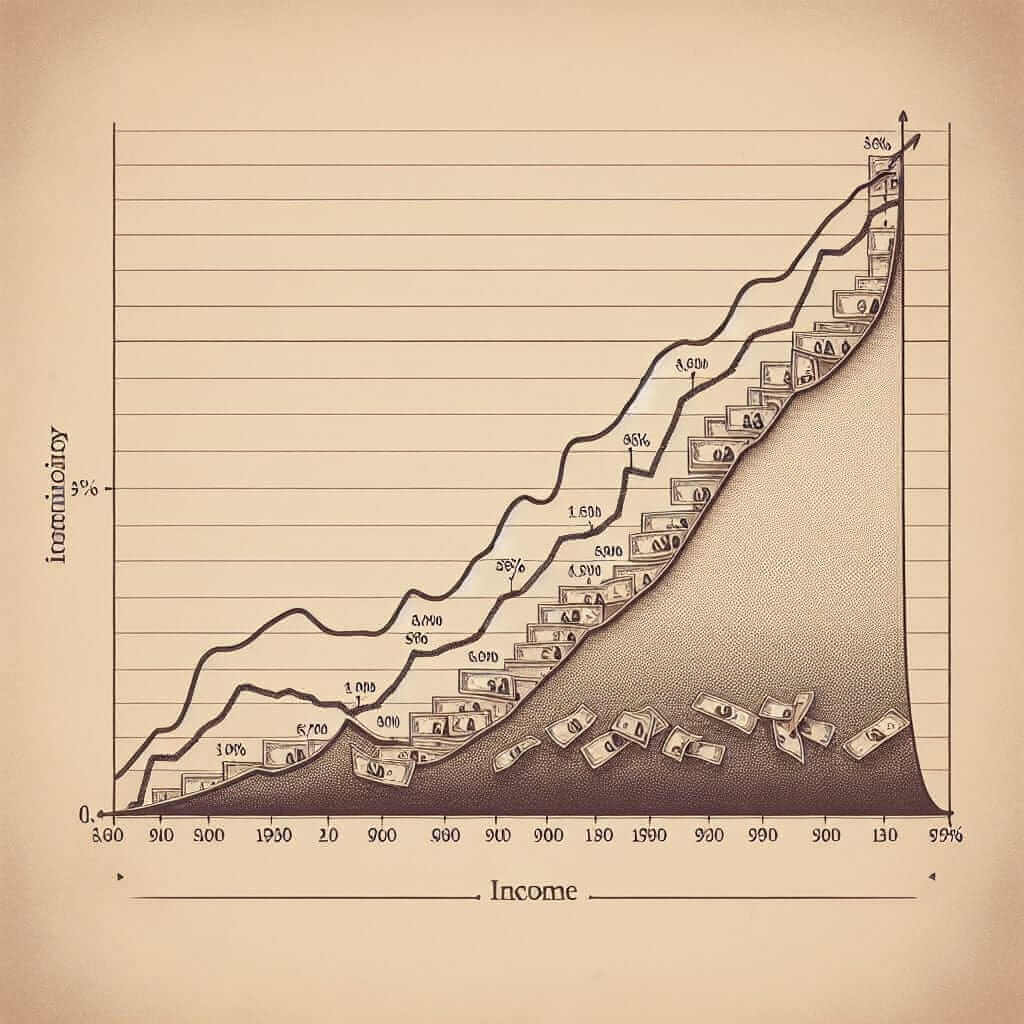Economic policies play a crucial role in shaping a country’s socioeconomic landscape. Among the many aspects affected by these policies, inequality stands out as a significant issue. As a frequent topic in the IELTS Writing Task 2, understanding its nuances is essential for achieving a high band score. This article will delve into the impact of economic policies on inequality, offering a comprehensive analysis, a sample essay, and useful tips for writing.
Common IELTS Writing Task 2 Topics and Sample Prompts
The impact of economic policies on inequality is a common theme in IELTS Writing Task 2. Here are some sample prompts related to this theme:
- “To what extent do you think economic policies can reduce inequality in society?”
- “Discuss the impact of government economic policies on social inequality.”
- “Economic inequality is a significant issue in many countries. Examine the role of government policies in addressing this problem.”
Choosing and Analyzing the Prompt
Let’s select the second prompt for our sample essay.
Prompt: “Discuss the impact of government economic policies on social inequality.”
Analyzing the Prompt
This prompt asks you to discuss — meaning you’ll need to present various perspectives on how government economic policies influence social inequality. Your essay should be well-structured, presenting both the potential positive and negative impacts of such policies.
Sample Essay
Introduction
Economic inequality remains a pressing issue globally, often reflecting deep-rooted societal disparities. Governments employ various economic policies with the intent to mitigate these inequalities. However, the effectiveness of such policies is subject to vigorous debate. This essay will examine both the positive and negative impacts of government economic policies on social inequality.
Body Paragraph 1: Positive Impacts
To address economic inequality, many governments implement progressive taxation and welfare programs. Progressive taxes ensure that higher-income earners contribute a larger percentage of their earnings, which in turn funds social programs benefiting the less fortunate. For instance, Scandinavian countries have effectively reduced inequality through such redistributive policies. Social welfare programs, such as unemployment benefits and universal healthcare, provide a safety net for vulnerable populations, enabling them to access essential services and opportunities for upward mobility. In this way, economic policies can foster a more equitable society.
Body Paragraph 2: Negative Impacts
Conversely, not all economic policies yield positive results. Policies favoring market liberalization and deregulation can exacerbate inequality. For example, tax cuts for the wealthy or corporations, intended to spur economic growth, often lead to a concentration of wealth among the affluent, widening the gap between rich and poor. Similarly, austerity measures, which cut public spending to reduce national debt, can disproportionately affect lower-income groups who rely on public services. Thus, it is evident that certain economic policies can unintentionally worsen social inequality.
Body Paragraph 3: Balanced View
It is crucial to understand that the impact of economic policies on inequality is not black-and-white. The effectiveness of these policies often depends on the broader context, including a country’s economic structure and political climate. A well-balanced approach, combining elements of both market freedom and social protection, may offer the best solution. Countries that effectively harmonize these aspects tend to achieve more sustainable and fair economic growth.

Conclusion
In conclusion, government economic policies can significantly influence social inequality, either mitigating or exacerbating it. Progressive taxation and welfare programs have proven effective in reducing disparities, while deregulation and austerity measures may have adverse effects. Ultimately, a balanced approach tailored to the specific needs of a society is crucial for addressing economic inequality.
(367 words)
Tips for Writing About Economic Policies and Inequality
Vocabulary and Grammar Tips
-
Complex Sentences: Use complex sentence structures to illustrate the cause-and-effect relationship between policies and inequality. For example, “While progressive taxation aims to reduce inequality, austerity measures can exacerbate it.”
-
Formal Tone: Maintain a formal academic tone throughout your essay, avoiding colloquial language.
-
Linking Words: Use cohesive devices such as “conversely,” “furthermore,” and “thus” to connect ideas logically.
Key Vocabulary
- Disparity (n) /dəˈsper.ə.ti/: A significant difference between two or more things.
- Redistributive (adj) /ˌriː.dɪˈstrɪb.jə.tɪv/: Involving the redistribution of income and wealth.
- Upward Mobility (n) /ˈʌpwərd məʊˈbɪləti/: The ability to move to a higher social or economic position.
- Austerity (n) /ɒˈster.ɪ.ti/: Economic policies aimed at reducing government debt through spending cuts.
- Progressive Taxation (n) /prəˈɡresɪv tæksˈeɪʃən/: A tax system where the tax rate increases as the taxable amount increases.
- Deregulation (n) /ˌdiːˌreɡ.jʊˈleɪ.ʃən/: The removal of regulations or restrictions, especially in a particular industry.
- Concentration (n) /ˌkɒnsənˈtreɪʃən/: The action or power of focusing one’s attention or mental effort or the gathering of people in a specific area.
- Equitable (adj) /ˈɛkwɪtəbəl/: Fair and impartial.
- Mitigate (v) /ˈmɪtɪɡeɪt/: To lessen the severity or seriousness of something.
- Exacerbate (v) /ɪɡˈzæsərbeɪt/: To make a problem, bad situation, or negative feeling worse.
Conclusion
Understanding the impact of economic policies on inequality is crucial for writing an effective IELTS essay on this topic. By examining both the positives and negatives of such policies and utilizing a range of vocabulary and grammar structures, you can create a balanced and coherent essay. Practice writing on various related prompts to enhance your skills and ensure you are well-prepared for the IELTS Writing Task 2.
Additional Practice Prompts
- “Evaluate the effectiveness of government intervention in reducing economic inequality.”
- “Analyze the role of education policies in bridging the gap between different socioeconomic groups.”
Happy writing, and remember, practice is the key to success!